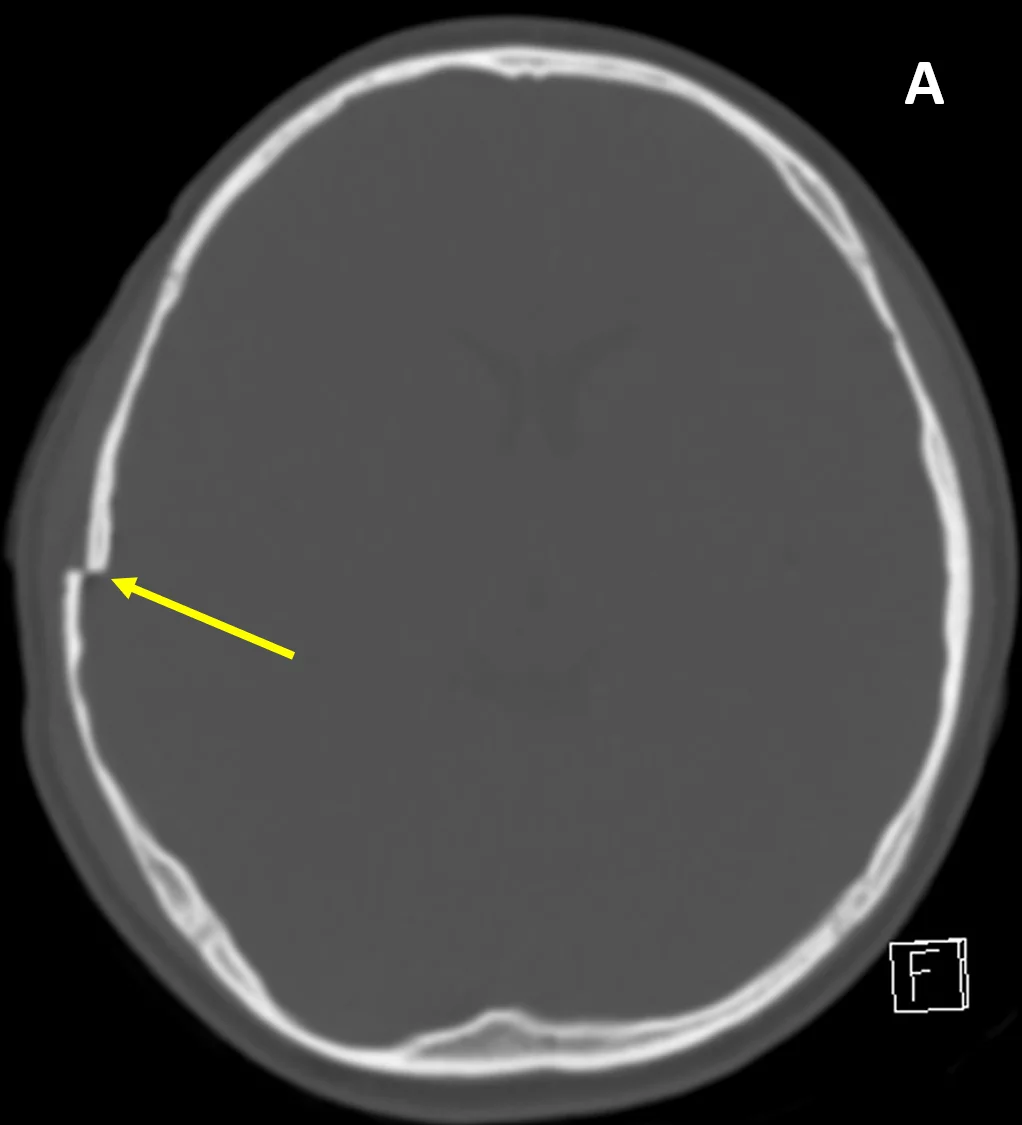What are the symptoms of a skull fracture?
Symptoms of a skull fracture can vary depending on the severity and location of the fracture. Common symptoms include:
- Headache: Often severe and persistent.
- Scalp Wounds: Cuts or bruises on the scalp that may be associated with the fracture.
- Swelling: Swelling or a bump on the head at the site of the injury.
- Bruising: Bruising around the eyes (raccoon eyes) or behind the ears (Battle’s sign), which may develop a few hours or days after the injury.
- Bleeding: Bleeding from the nose, ears, or mouth.
- Fluid Leakage: Clear or bloody fluid draining from the nose or ears, which may indicate a cerebrospinal fluid leak.
- Loss of Consciousness: Brief loss of consciousness or altered mental status immediately after the injury.
- Nausea or Vomiting: Often accompanied by a severe headache.
- Vision or Hearing Changes: Blurred vision, double vision, or hearing loss.
- Confusion or Drowsiness: Difficulty staying awake or responding to questions.
- Seizures: In some cases, seizures may occur.
If you suspect a skull fracture, especially if accompanied by any of these symptoms, it is crucial to seek medical attention promptly for a proper evaluation and treatment.
What are the causes of a skull fracture?
A skull fracture can be caused by a variety of factors, including:
- Trauma: The most common cause is a direct blow or impact to the head from accidents such as falls, car accidents, or sports injuries.
- Violence: Physical assaults, such as those involving blunt force or assault with weapons, can result in skull fractures.
- Child Abuse: In infants and young children, skull fractures may occur due to child abuse, including shaking or throwing.
- Medical Procedures: Certain medical procedures, such as surgeries involving the head, can occasionally result in skull fractures.
- High-Impact Activities: Activities that involve high risks, like contact sports (football, boxing) or extreme sports, can lead to skull fractures.
- Accidents: Situations like a heavy object falling on the head or a person hitting their head against a hard surface can cause fractures.
- Underlying Health Conditions: Rarely, conditions such as bone disorders or certain diseases that weaken the skull can contribute to fractures.
What is the treatment for a skull fracture?
Treatment for a skull fracture depends on the type and severity of the fracture, as well as the presence of any associated injuries or complications. General approaches to treatment include:
- Observation: Minor skull fractures, especially those without associated brain injury or symptoms, may only require careful monitoring and follow-up. This involves regular medical check-ups to ensure there are no developing complications.
- Rest and Pain Management: Rest and over-the-counter pain relievers may be recommended to manage discomfort and reduce inflammation. Avoiding activities that could further stress the injury is also advised.
- Medical Evaluation: For more severe fractures, a thorough medical evaluation is necessary, including imaging studies like CT scans or MRIs to assess the extent of the injury and check for associated brain injuries.
- Surgical Intervention: If the fracture involves significant displacement or if there is a risk of complications, surgery may be required. This could involve realigning the fractured pieces of bone and securing them with plates or screws.
- Treatment of Associated Injuries: If the fracture is accompanied by a brain injury, treatment may involve managing symptoms such as swelling, bleeding, or increased intracranial pressure. This could include medications or procedures to address these issues.
- Antibiotics: If there is an open fracture (where the skull is exposed), antibiotics may be prescribed to prevent infection.
- Follow-Up Care: Regular follow-up with healthcare providers is important to monitor healing and address any complications that may arise.
Immediate medical attention is crucial for any suspected skull fracture to ensure appropriate care and prevent complications.

Leave a Reply
You must be logged in to post a comment.